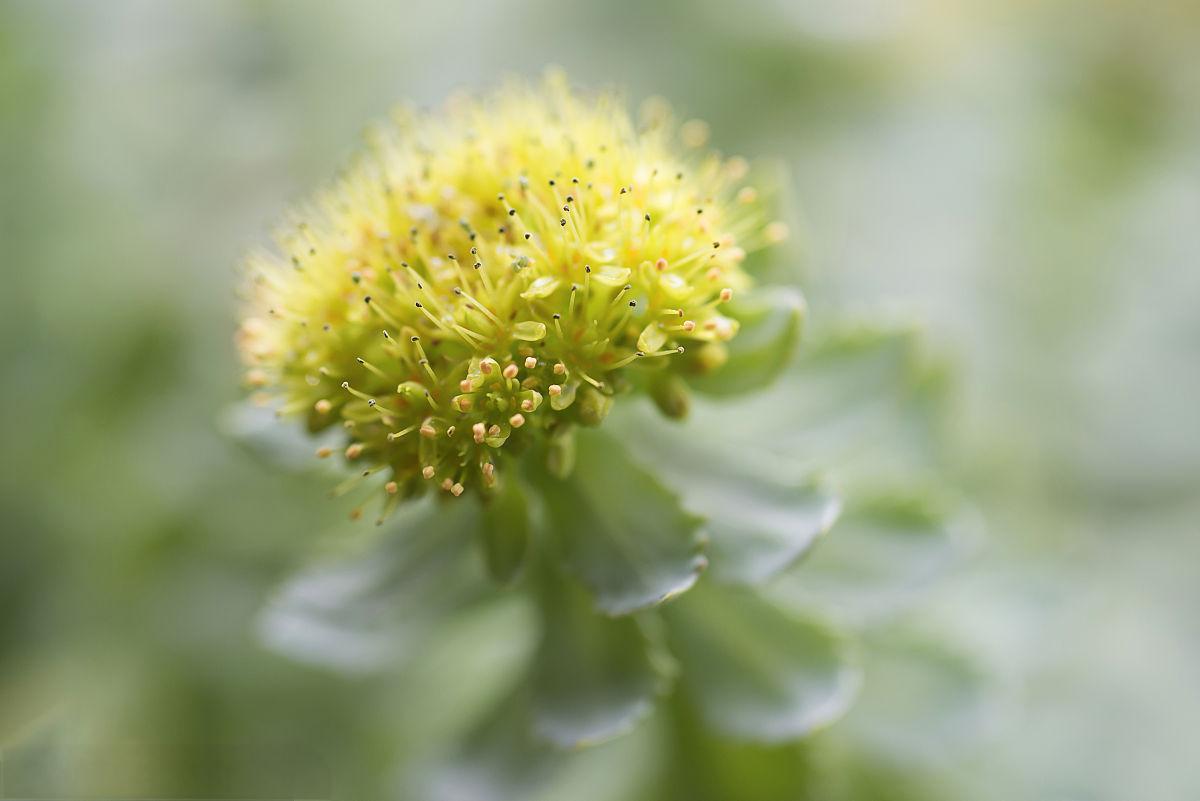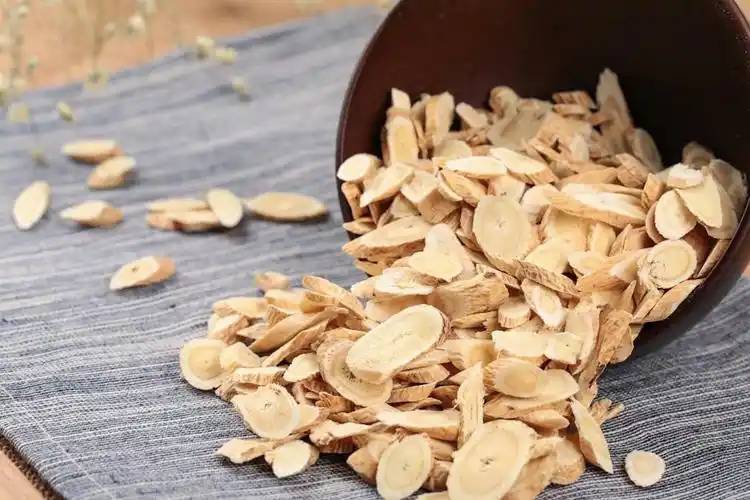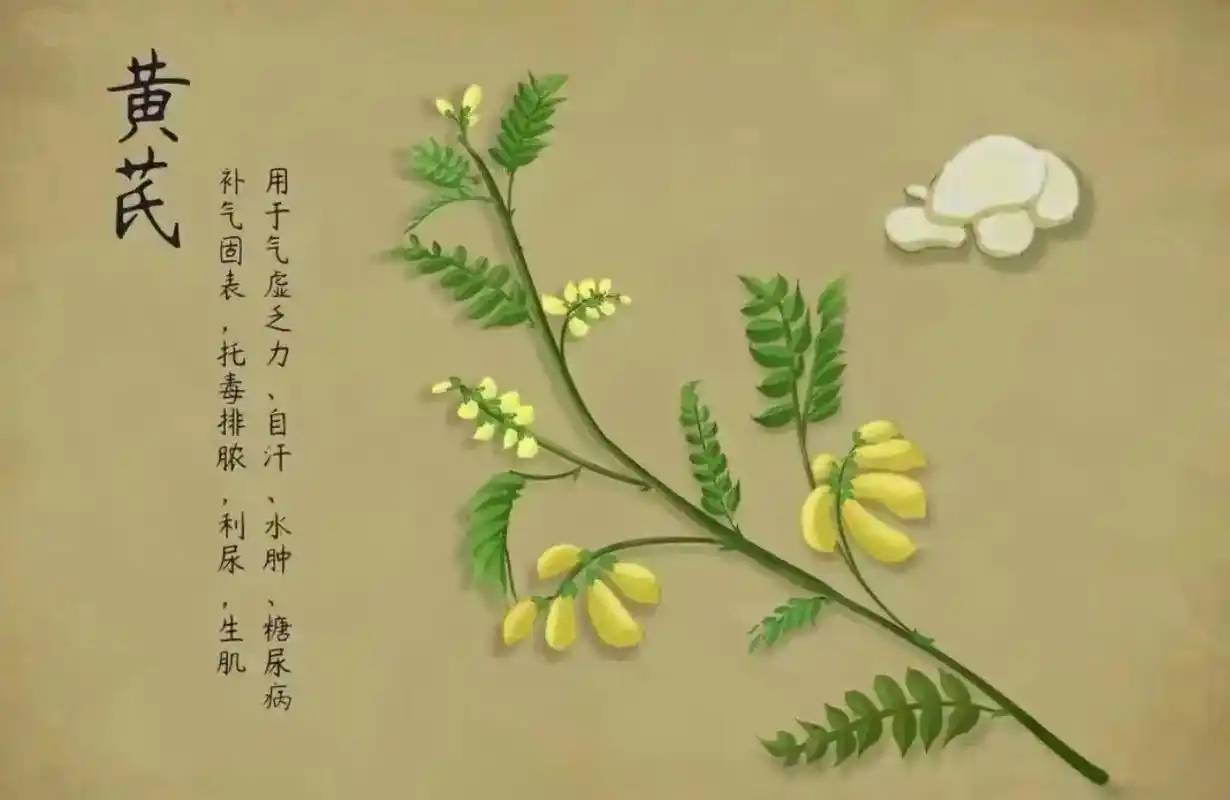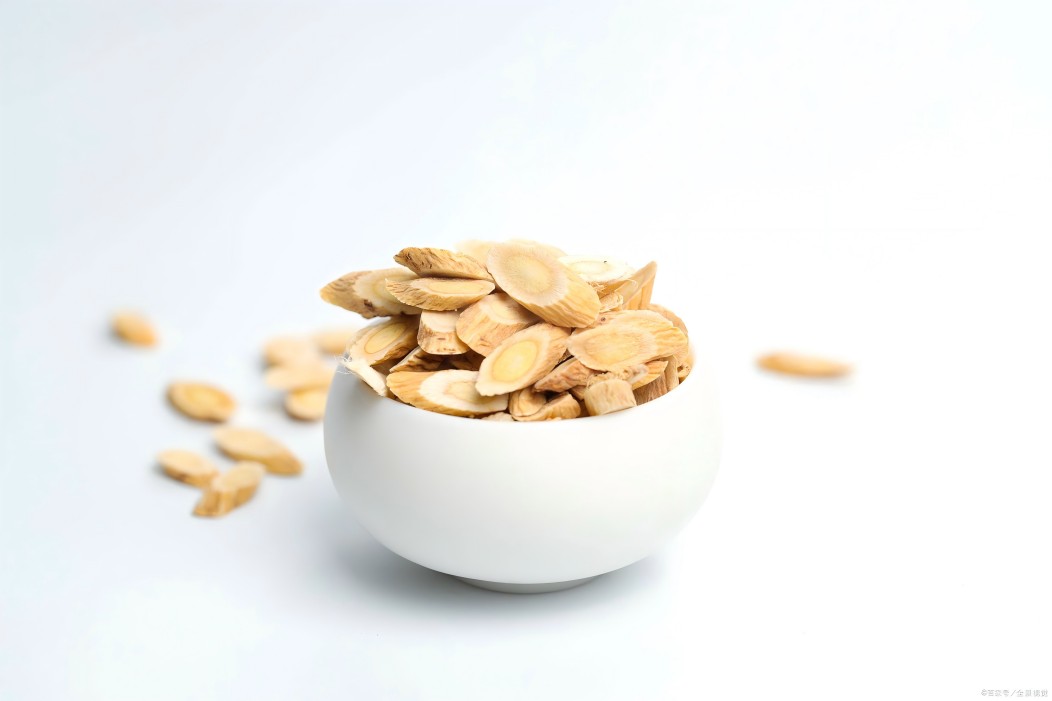The Use of Astragalus Extract Astragalus Polysaccharides in Pig Feeding
Weaned piglets have an underdeveloped digestive and immune system, and are prone to stress reactions such as diarrhea and poor resistance [1]. Against the background of the “anti-antibiotic” ban on feed, research on health-promoting feed additives is of great significance for improving animal production performance and enhancing the immune function of the animal body [2].
Astragalus polysaccharide is one of the main active ingredients of astragalus[3]. Its main components are glucan and heteropolysaccharides[4]. It can improve protein metabolism, lipid metabolism and growth performance of animals, and regulate the intestinal flora, immune system and antioxidant function of animals[5-6]. Chen Yansheng et al. [7] found that astragalus polysaccharides have a positive effect on improving the growth performance, apparent digestibility and serum amino acid levels of weaned piglets.
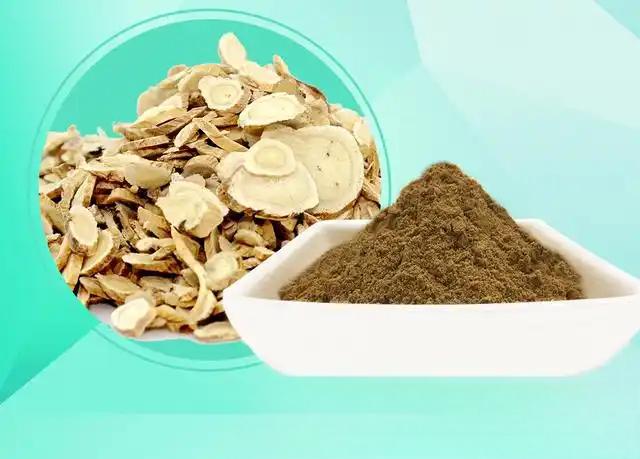
Zhao Zhengwei et al. [8] showed that astragalus polysaccharides can improve the growth performance and serum immune function of Tan sheep. Wu Xuan et al. [9] showed that astragalus polysaccharides can increase the intestinal villus length and crypt depth and muscle layer thickness of tilapia, and increase the number of intestinal mucus cells and intraepithelial lymphocytes. Zhang Yang et al. [2] believe that astragalus polysaccharides can inhibit the growth of harmful bacteria by increasing the relative abundance of the XPPB1014 group of the family Enterobacteriaceae in the feces of growing and finishing pigs. This paper summarizes the application of astragalus polysaccharide in piglet production, providing a reference for further application of astragalus polysaccharide in animal husbandry.
1 Biological functions of astragalus polysaccharide
1.1 Immunomodulatory function
Astragalus polysaccharide can effectively stimulate the growth and development of animal immune organs and enhance the specific/nonspecific immune responses of cellular immunity and humoral immunity. Research by Cheng Zhibin et al. [10] shows that astragalus polysaccharide can effectively promote antibody synthesis in mice and enhance their humoral immune capacity.
Mao Xiaofeng [11] believes that astragalus polysaccharide can significantly reduce the levels of inflammatory factors such as interleukin-1β (IL-1β), prostaglandin E2 (PGE-2), cortisol, growth hormone(GH), insulin-like growth factor 1 (IGF-1), and other inflammatory factors. Astragalus polysaccharides may have an immunomodulatory mechanism that enhances animal immunity by regulating the concentration of immune signal molecules and inflammatory factors in the body. Ou Deyuan et al. [12] believe that astragalus polysaccharides can effectively reduce the expression levels of inflammatory factors such as tumor necrosis factor-alpha (TNF-α) and interleukin-1 (IL-1) in young pigs, effectively alleviating inflammatory symptoms in young pigs. Astragalus polysaccharides can also be used as a vaccine protective agent and immune activator to activate the immune stress response of the animal body [5].
1.2 Antibacterial and antiviral functions
The antibacterial mechanism of astragalus polysaccharide is mainly reflected in two aspects. The first is the inhibitory effect on bacteria, pathogenic bacteria and the cytotoxic substances produced by bacteria and pathogenic bacteria; the second is to enhance the direct killing effect of immune cells on bacteria and pathogenic bacteria by regulating the immune mechanism of the animal body. Mao Xiaofeng[11] research shows that astragalus polysaccharide has a certain inhibitory or bactericidal effect. 0.5% astragalus polysaccharide has a significant inhibitory effect on Escherichia coli, and 1% astragalus polysaccharide has an inhibitory effect on Escherichia coli, Salmonella and Staphylococcus aureus.
Astragalus polysaccharides can activate the immune functions of macrophages and T cells, induce the secretion and expression of cytokines, increase the expression level of interleukins, and thereby induce the secretion and expression of endogenous interferons, which have a protective effect against viruses. Zhao Juan et al. [13] believe that astragalus polysaccharide can effectively increase the number of T cells, nitroblue tetrazolium chloride (NBT)-positive cells, and CD4+ T cells in PCV2-positive pigs, as well as the expression levels of inflammatory factors, interleukin-2 (IL-2), interleukin-4 (IL-4), and interferon-γ (IFN-γ). It is speculated that astragalus polysaccharide's antiviral effect may be due to its effect on these factors. interleukin-2 (IL-2), interleukin-4 (IL-4), interferon-gamma (IFN-γ), etc., and it is speculated that the antiviral effect of astragalus polysaccharide may be achieved by regulating these cells and cytokines.
The activity of antioxidant enzymes such as total superoxide dismutase (T-SOD), catalase (CAT), and glutathione peroxidase (GSH-Px), as well as the content of malondialdehyde (MDA) and other products of oxidative reactions in the body, can measure the body's antioxidant capacity. Wu Zhan-yun[14] pointed out that the addition of astragalus polysaccharide (200 mg/kg) to the feed of weaned piglets from the “Du × Chang × Da” three-way crossbred pigs can effectively increase the SOD activity in pigs, improve the body's antioxidant capacity, and and has a regulatory effect on the AMPK/SIRT-1 signaling pathway, which can reduce the damage of ochratoxin A (OTA) to the spleen by regulating the AMPK/SIRT-1 signaling pathway. Li Rong et al. [15] found that the serum GSH-Px activity of weaned piglets in the 0.1% astragalus polysaccharide group was significantly higher than that of the control group, and the MDA content was extremely significantly lower than that of the control group, indicating that astragalus polysaccharide improved the antioxidant activity of weaned piglet serum.
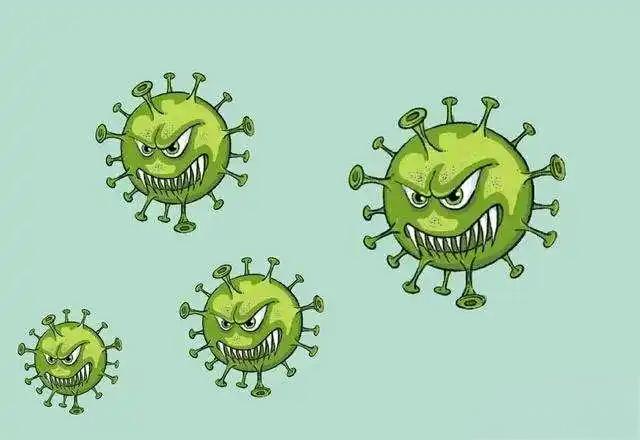
2 Application of astragalus polysaccharide in piglet production
2.1 Improving piglet growth performance
Astragalus polysaccharide can effectively improve piglet feed utilization and growth performance, thereby increasing the economic benefits of piglet farming [7,15-16]. However, the purity and dosage of astragalus polysaccharide added to the diet will have different effects on piglet growth performance.
Fu Jie's [17] research showed that the final weight and average daily weight gain of weaned piglets from a three-way cross between “Du × Chang × Da” added with 1.0 and 1.5 g/kg astragalus polysaccharides were higher than those of the control group without astragalus polysaccharides added control group. The feed conversion ratio and diarrhea rate were significantly lower than those of the control group. The amount of astragalus polysaccharide additive was positively correlated with the average weight and average daily weight gain of weaned piglets, and the amount of astragalus polysaccharide additive was negatively correlated with the feed conversion ratio and diarrhea rate. Therefore, adding astragalus polysaccharide to the feed of weaned piglets can improve the growth performance of weaned piglets and reduce the risk of diarrhea in weaned piglets.
Meng Hongjiao et al. [18] believe that the effect of adding 0.5 g/kg astragalus polysaccharide to the diet on promoting piglet growth performance is not obvious, and adding 1.0 or 2.0 g/kg astragalus polysaccharide to the diet can reduce the diarrhea rate of piglets by about 20%. Astragalus polysaccharides have the effect of regulating the balance of the intestinal flora of piglets and improving the intestinal environment of piglets, thereby improving the growth performance of piglets. Wu Zhan Yun [14] believes that 400 and 600 mg/kg astragalus polysaccharides can improve the growth performance of weaned piglets and reduce the diarrhea rate, and the effect of the 600 mg/kg astragalus polysaccharide group is even more ideal.
2.2 Improve the immune and antioxidant functions of piglets
Astragalus polysaccharides can effectively improve the immune and antioxidant capacities of pigs, and have a positive regulatory effect on the down-regulation of immune levels caused by various stress responses. When used in combination with vaccines, they can enhance the body's immune response to antigens, increase antibody titers and prolong the duration of action. Bian Chuan Zhou et al. [19] found that 7–14 days after weaning, the number of lymphocytes in the group of piglets supplemented with astragalus polysaccharide was increased by 10%–20%, the number of neutrophils was decreased by 15%–30%, and the antibody titer against sheep red blood cells (ant-SRBC) was increased by 0.5–1.5. Xie Huimei[20] found that the amount of astragalus polysaccharide injected was positively correlated with antibody titer. Wei Fengxian et al.[21] found that the ratio of serum globulin to albumin in the astragalus polysaccharide group of “Duxiangchangda” weaned piglets was significantly increased, and the stimulating effect of phytohaemagglutinin (PHA) on the thickness of the skinfold was more obvious than that of the control group. Xu Jingbo et al. [22] believe that astragalus polysaccharide has a certain promoting effect on the specific and non-specific immune function, humoral immune function and cellular immune function of piglets.
Liu Zikui et al. [23] and Wang Chaofeng et al. [24] found that there is a good correlation between the antibody level of swine fever and the concentration of astragalus polysaccharide injection, and astragalus polysaccharide can significantly upregulate the antibody level of swine fever in pigs. Zhang Hongying et al. [25] found that astragalus polysaccharide can significantly increase the humoral immune level of piglets and effectively stimulate the proliferation of CD3+ T cells. Xiong Qiyan et al. [26] showed that astragalus polysaccharide also has a similar effect on the cellular immune response to Mycoplasma hyopneumoniae antigens in pigs. Shao Shan et al. [27] immunized piglets with astragalus polysaccharide as an immune enhancer in an inactivated vaccine against porcine reproductive and respiratory syndrome (PRRS) virus. The results showed that astragalus polysaccharide can upregulate the proliferation of peripheral blood lymphocytes in piglets, accelerate the production of PRRS virus antibodies and significantly enhance the titer of PRRS virus antibodies, and stimulate the expression of interleukin-2.
Huang Bao et al. [28] showed that the addition of 0.5 and 1.0 g/kg astragalus polysaccharide to the feed can significantly increase the content of IL-4 and INF-γ in the serum of piglets and the antibody titer to swine fever. The use of astragalus polysaccharide before and after vaccination against swine fever can effectively improve the immune response level to the vaccine, increase the antibody titer, and increase the immune effect of the vaccine against swine fever. Zhang Yan Zhang Yanli et al. [29] showed that a plant extract composed of astragalus polysaccharides and berberine can increase the activity of antioxidant enzymes in piglet serum and reduce MDA content. The reason is that the plant extract activates the expression of NRF2, thereby increasing the activity of antioxidant enzymes such as CAT and SOD in weaned piglets, scavenging excess reactive oxygen species in the piglets, and reducing damage to the body.
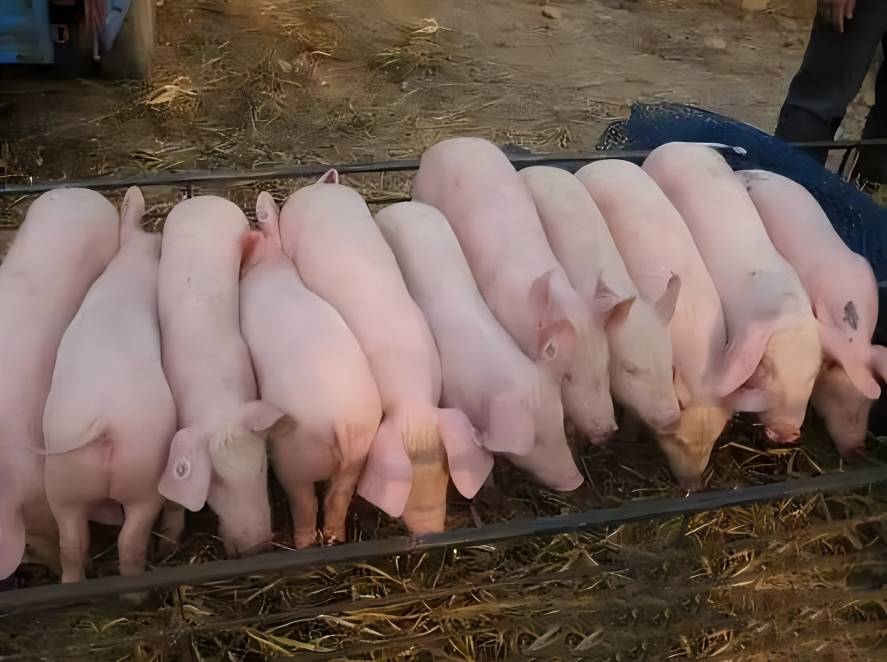
2. 3. Disease prevention and treatment
Astragalus polysaccharides can resist bacterial and viral infections in pigs by regulating the intestinal flora and stimulating the synthesis and secretion of interferon, thereby enhancing the immune capacity and level of pigs and reducing the incidence of piglet diseases and the infection rate of epidemic viral diseases [30-31].
Zhang Bo et al. [32] showed that Astragalus polysaccharides can significantly reduce the incidence of various diseases in piglets (such as yellow dysentery, white dysentery, edema disease, pneumonia, streptococcal disease), improve the survival rate of piglets, and improve the growth performance of piglets. Ni Zhi Hong [33] found that the use of astragalus polysaccharides to treat porcine circovirus disease (PCD) had an effective treatment rate of up to 2.34%, which was much higher than that of the control group.
Hu Cang Yun et al. [34] found that when Astragalus polysaccharide was injected into piglets and mixed with Astragalus polysaccharide additives in the basal diet, the diarrhea rate of piglets was reduced to 8.6% by the combination of Astragalus polysaccharide injection and oral administration, which was significantly lower than that of the injection group and blank control group. The mortality rate of piglets was even as low as 0, and the effect was very significant. Yu Cai [35] added different doses of astragalus polysaccharide to piglets' feed for 35 days and found that astragalus polysaccharide can significantly improve piglets' growth performance and reduce the diarrhea rate of piglets, and the effect is positively correlated with the dose of astragalus polysaccharide.
Yan Dong [36] found that the addition of astragalus polysaccharide to the basic treatment of piglets can improve the cure rate of pig diseases. Zhu Daoxian et al. [37] believe that astragalus polysaccharide can assist in enhancing the therapeutic effect of azithromycin on porcine epidemic diarrhea. Hou Xi et al. [38] found that astragalus polysaccharide can reduce the diarrhea rate of piglets, and its effect is similar to that of the antibiotic group. However, astragalus polysaccharide has a stronger effect on increasing the serum immunoglobulin G level than antibiotics, and it also promotes the proliferation of CD3+T cells and CD4+/CD8+T cells better than antibiotics.
3 Conclusion
Astragalus polysaccharide is a natural active substance that can regulate the body's immune function and has antibacterial, antiviral and antioxidant properties. Astragalus polysaccharide can effectively promote the absorption and conversion of nutrients by piglets, improve their growth performance, promote the body's immune response level, stimulate the development of immune organs and the immune system, and also enhance the body's antioxidant capacity. It has good application prospects.
References:
[1] Li Shihan, Xu Weiguo, Zou Qiangqiang, et al. Effects of ultra-early weaning on growth performance and fecal microbial flora of piglets [J]. Modern Animal Husbandry and Veterinary Medicine, 2022(11):24-28.
[2] Zhang Yang, Lv Huiyuan, Xu Shengyu, et al. Effects of compound probiotics and astragalus polysaccharides on growth performance, serum biochemical indicators and fecal microbiota of growing and finishing pigs [J]. Journal of Animal Nutrition, 2021, 36(6): 3542-3553.
[3] Wang Cuiju, Wang Hongfang, Chen Hui, et al. Effect of astragalus polysaccharide on the antioxidant capacity and egg quality of laying hens [J]. Journal of Animal Nutrition, 2011, 23(2): 280-284.
[4] Yang Qiuxia, Wang Hongfang, Chen Hui, et al. Effect of adding astragalus polysaccharide to the feed on the serum and egg yolk lipid traits of laying hens [J]. Journal of Animal Nutrition, 2011, 23(12): 2143-2148.
[5] Liu Hongying, Wang Jingyu, Cui Zhenzhen, et al. Research progress on the immunoadjuvant effect of effective components of traditional Chinese medicine on animal vaccines and related mechanisms [J]. Chinese Journal of Animal Science and Veterinary Medicine, 2023, 50(1): 390-397.
[6] Wang Qiu-yuan, Liu You-wen, Yue Chen, et al. Research progress on the effect of traditional Chinese medicine on cell pyroptosis in autoimmune diseases [J]. Chinese Journal of Experimental Traditional Medicine, 2023, 29(2): 260-269.
[7] Chen Y, Li Z, Hu Y, et al. Effects of astragalus polysaccharide on growth performance, apparent digestibility and serum amino acid concentrations of weaned piglets [J]. Chinese Journal of Animal Science, 2023(2):68-71.
[8] Zhao ZW, Liu FF, Wang J, et al. Effects of astragalus polysaccharide, medlar polysaccharide and glycyrrhizic acid on growth performance and serum immune indices of Tan sheep. Feed Research, 2022, 45(2): 13-16.
[9] Wu Xuan, Bai Dongqing, Zhu Guoxia, et al. Effect of long-term feeding of astragalus polysaccharides on immune cell activity of yellow croaker [J]. Journal of Animal Nutrition, 2011, 23(5): 887-892.
[10] Cheng Zhibin, Ge Changrong, Han Jianzong. The influence of effective components of Chinese herbal medicine on animal immune function and its application [J]. Animal Science and Veterinary Medicine, 2002, 19(1): 1-2.
[11] Mao Xiaofeng. Research on the influence of astragalus polysaccharide on the immune function of weaned piglets and its mechanism of action [D]. Beijing: China Agricultural University, 2004.
[12] Ou Deyuan, Gao Mingyu, Tian Xingui, et al. Effect of astragalus polysaccharide on the secretion of TNF-α, NO and IL-1 by peritoneal macrophages induced by bacterial lipopolysaccharide in piglets [J]. Guizhou Animal Husbandry and Veterinary Medicine, 2007(5): 1-3.
[13] Zhao Juan, Liu Fenghua, Qiu Hehui, et al. Effect of astragalus polysaccharide on peripheral blood immune cells and related cytokines in PCV2-positive pigs [J]. Chinese Journal of Veterinary Medicine, 2010(3): 3-5.
[14] Wu Zhan-yun. Effect of adding different levels of astragalus polysaccharide to feed on the growth performance of weaned piglets [J]. China Pig Industry, 2022, 17(3): 57-59.
[15] Li Rong, Li Hai-yuan, Jing Li. Effect of yeast selenium and astragalus polysaccharide on growth performance, diarrhea rate, serum immunity, antioxidant and biochemical indicators of weaned piglets [J]. Feed Research, 2022, 45(16): 23-27.
[16] Du Shuhui, Liu Yuping, Han Zijun. Effect of adding astragalus polysaccharide to the diet on the growth performance of weaned piglets [J]. Special Economic Animals and Plants, 2023, 26(3): 1-3.
[17] Fu J. Effect of astragalus polysaccharide on growth performance of weaned piglets [J]. China Pig Industry, 2022(2):67-69.
[18] Meng Hongjiao, Jiang Hailong, Zhu Shixin, et al. Effects of astragalus polysaccharide on growth performance, nutrient digestibility and immune function of weaned piglets [J]. Pig Raising, 2016(6): 41-43.
[19] Bian Chuanzhou, Wang Laoji. Effects of astragalus polysaccharide on immune function and diarrhea of weaned piglets [J]. Animal Husbandry and Veterinary Medicine, 2005, 37(1): 12-14.
[20] Xie Huimei. Study on the adjuvant effect of astragalus polysaccharide and ginseng saponin Rb1 on foot-and-mouth disease vaccine in pigs and the related mechanism [D]. Baoding: Hebei Agricultural University, 2006.
[21] Wei Fengxian, Li Shaoyu, Kong Xiangshu, et al. Effect of astragalus polysaccharide on growth performance and immune function of growing pigs [J]. Chinese Journal of Animal Science and Veterinary Medicine, 2006, 33(10): 17-19.
[22] Xu Jingbo, Zhang Fei, He Lihua, et al. Effect of astragalus polysaccharide on immune function of piglets [J]. Animal Husbandry and Veterinary Medicine, 2007, 39(2): 41-42.
[23] Liu ZK, Yao GM, Wu Y, et al. Observation of the immune adjuvant effect of compound astragalus polysaccharide injection as a vaccine adjuvant [C]//Proceedings of the First China Veterinary Medicine Conference Animal Pharmacology and the 2008 Annual Conference of the Animal Pharmacology Branch of the Chinese Society of Animal Science and Veterinary Medicine. Tianjin: Chinese Society of Animal Science and Veterinary Medicine, 2008.
[24] Wang Chaofeng, Wang Yuanwei. Immunostimulatory effect of astragalus polysaccharide on swine fever live attenuated vaccine [J]. Sichuan Animal Husbandry and Veterinary Medicine, 2013(4):20-21.
[25] Zhang Hongying, Cui Bao'an, Wang Xuebing. Effect of two plant polysaccharides on antibody and T lymphocyte subsets in pigs immunized with PRRSV inactivated vaccine. Journal of Hunan Agricultural University: Natural Science Edition, 2010, 36(2): 210-214.
[26] Xiong Qiyan, Dong Lu, Feng Zhixin, et al. Study on the in vitro and in vivo stimulation ability of adjuvant for live vaccine against Mycoplasma hyopneumoniae to promote cellular immunity [J]. Jiangsu Agricultural Science Journal, 2012 (6): 154-160.
[27] Shao S, Li C, Hou J, et al. Effect of Astragalus polysaccharide and Hedyotis diffusa Willd. polysaccharide on the immunity of inactivated vaccine against highly pathogenic reproductive and respiratory syndrome [J]. Chinese Journal of Veterinary Medicine, 2009, 29(5): 542-545, 550.
[28] Huang Baoping, Liu Yinbao, Liu Yuhua. Effect of astragalus polysaccharide on the production performance of weaned piglets and the immune effect of swine fever vaccine [J]. Anhui Agricultural Science, 2014, 42(17): 5493-5494, 5496.
[29] Zhang Y L, Cai L, Lv H Y, et al. Effects of a compound plant extract on growth performance, diarrhea rate, serum biochemistry and antioxidant indicators in weaned piglets [J]. Chinese Journal of Animal Science, 2022, 58(8): 275-280.
[30] Zhuge Z Y, Zhu Y H, Liu P Q, et al. Effects of Astragalus polysaccharide on immune responses of porcine PBMC stimulated with PRRSV or CSFV [J]. PLoS One, 2012, 7(1): 29320.
[31] Bai Mingmei, Li Pan. Pharmacological effects and veterinary clinical applications of astragalus polysaccharides [J]. Hubei Animal Husbandry and Veterinary Medicine, 2018, 39(3): 18-19.
[32] Zhang B, Bai W, Jin C. Application of astragalus polysaccharides to improve the survival rate and weaning weight of suckling piglets [J]. Heilongjiang Animal Husbandry and Veterinary Medicine, 1999(4): 11-12.
[33] Ni Zhihong. Experimental study on the efficacy of Baytril against porcine circovirus disease [J]. Hunan Animal Husbandry and Veterinary Medicine, 2006(3):5-7.
[34] Hu Cangyun, Lu Shijun, Wang Xinguai, et al. Experimental study on the efficacy of astragalus polysaccharide against diarrhea and promoting growth in weaned piglets [J]. Heilongjiang Animal Husbandry and Veterinary Medicine, 2007(9):81.
[35] Yu Yucai. Effect of Astragalus extract on anti-diarrhea and growth performance of piglets [J]. Hunan Animal Husbandry and Veterinary Medicine, 2007(4):9-11.
[36] Yan Zhengdong. Study on the effect of Astragalus polysaccharide and norfloxacin in combination for the treatment of yellow and white diarrhea in piglets [J]. Modern Agricultural Science, 2008, 15(7): 59-60.
[37] Zhu Daoxian, Zhou Chunbao, Han Dayong, et al. The efficacy of azithromycin combined with astragalus polysaccharide in treating asthma in Jiangqu Haizai pigs [J]. Jiangsu Agricultural Science, 2012(2):191-192.
[38] Hou Xie'e, Hao Ruirong. The effect of astragalus polysaccharide on the diarrhea rate and immunity of piglets [J]. Contemporary Animal Husbandry, 2012(6):48-49.


 English
English French
French Spanish
Spanish Russian
Russian Korean
Korean Japanese
Japanese